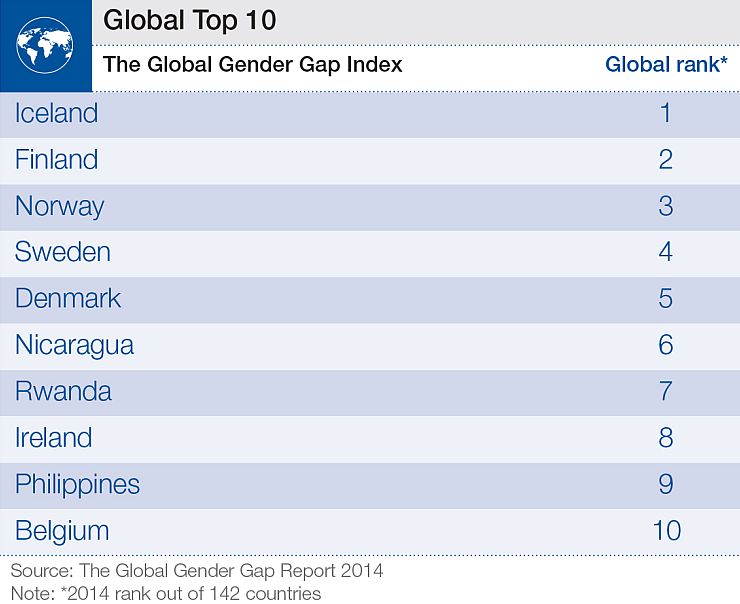Analytics, Baltic States – CIS, EU – Baltic States, Financial Services, Rating
International Internet Magazine. Baltic States news & analytics
Wednesday, 17.04.2024, 00:46
Estonia on low position in gender equality global list
 Print version
Print version
Through the Global Gender Gap Report 2014, the World Economic Forum quantifies the magnitude of gender-based disparities and tracks their progress over time. While no single measure can capture the complete situation, the Global Gender Gap Index presented in the report seeks to measure one important aspect of gender equality: the relative gaps between women and men across four key areas: health, education, economy and politics.
Estonia was on the 62nd position, ahead of Zimbabwe and behind Thailand. Latvia is on the 15th and 44th position but Finland on the 2nd place, after rankings leader Iceland.

While most countries in the ranking have improved their gender equality positions, Estonia has suffered a major fall – in 2006 for example, Estonia was on the 29th position in the list.
Iceland (1) ranked fourth overall in 2006. It climbed to the top of the rankings within four years, remaining in that position for six consecutive years. This year, Iceland ranked first overall on the Political Empowerment sub-index.
This year’s findings show that Iceland continues to be at the top of the overall rankings in The Global Gender Gap Index for the sixth consecutive year. Finland ranks in second position, and Norway holds the third place in the overall ranking. Sweden remains in fourth position and Denmark gains three places and ranks this year at the fifth position. Northern European countries dominate the top 10 with Ireland in the eighth position and Belgium (10) Nicaragua (6), Rwanda (7) and Philippines (9) complete the top 10.

The index continues to track the strong correlation between a country’s gender gap and its national competitiveness. Because women account for one-half of a country’s potential talent base, a nation’s competitiveness in the long term depends significantly on whether and how it educates and utilizes its women.








 «The Baltic Course» Is Sold and Stays in Business!
«The Baltic Course» Is Sold and Stays in Business!

